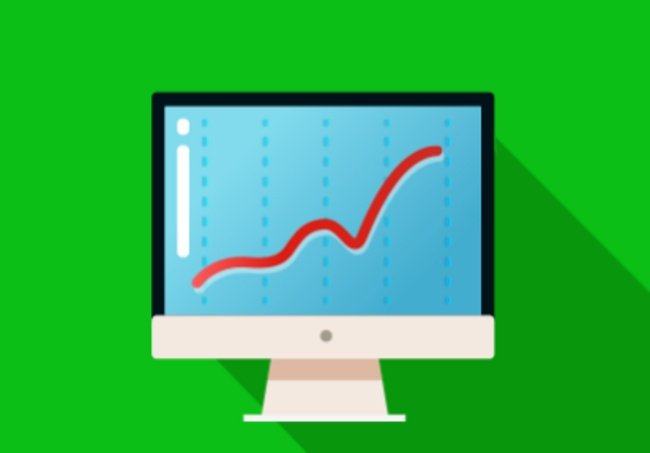Many people think that backlinks or external links from other relevant websites are the only way to improve their website’s ranking in search engines. But it’s not true at all. Internal linking or interlinking can also help you increase your pages rankings.
Google looks at all links when evaluating a page’s ranking strength. And that includes the links you create to your pages. So you may be asking: “What is internal linking?” or “Why should I bother?”
Let’s assume that you have a piece of content on your website about “How to Make a Cake.” You mention something about the right amount of sugar to add to that content. And you just happen to have another piece of content on your website about “How Much Sugar Should You Add to a Cake?”
You can link the two pieces of content together so that Google knows they’re related. So there you go, you have an internal link, which will pass some link juice or ranking power to the page you’re linking to.
If you’re not convinced about the importance of internal linking for SEO, here are a few reasons why it’s SUPERCRITICAL.
Search engines use internal links to understand your site’s structure
Imagine your website as a pyramid. At the top of the pyramid is your homepage, and below it is your other pages organized in a hierarchy. For example, your “About” page might be at the second level of the pyramid, and your “Contact” page might be at the third level.
Google uses this hierarchy to understand the relationships between your pages, which helps them figure out what your site is about and how different web pages relate to each other.
Search engines use your internal linking structure to access and crawl all your content. Additionally, website visitors use internal links to navigate between your pages. If you want people to find and read your content, it’s essential to have a well-organized website with clear internal links.
Pages with no internal links are known as orphan pages. In particular, orphan pages are often hard for visitors to find, and they may never be found or indexed by search engines.
If you want your website to be successful, it’s crucial to have a good internal linking structure. Work with us. We are an SEO specialist in Los Angeles, CA, that can help you optimize your website’s internal linking structure.
Internal links help the flow of Search Engine PageRank around your website
The more internal links you have, the higher the chance of passing PageRank to other pages on your website. And this is a big deal. PageRank is one of the main factors that Google uses to determine where your website should rank in its search results.
However, the quality of the link is way more important than the quantity. So, even if the more, the better. It’s still better to have fewer high-quality links than many low-quality ones.
PageRank is equally divided between the number of links on a web page. So, if you have two links on a page; each link will get 50% of the PageRank that the page has to offer.
But if one of those links is to your website’s home page and the other is to an external website; all of the PageRank will go to the external site. That’s because home pages typically have a lot of links to them; so they can afford to lose some PageRank and still have plenty leftover.
To make sure that your internal links are helping your website, you need to consider a few things:
- The quality of the page that you’re linking to. If it’s a high-quality page, it’s more likely to pass PageRank.
- The relevance of the page that you’re linking to. If it’s relevant to the topic of your website, it’s more likely to pass PageRank.
- The placement of the link. If it’s in the middle of a piece of content, it’s more likely to be clicked on and; as a result, more likely to pass PageRank.
If you’re looking to increase the amount of PageRank that flows around your website; start by taking a look at your internal links. You can do that through Google Analytics. By making a few changes, you could see a big difference in your website’s search engine results pages ranking.
Internal linking guides visitors and Google to your important pages
Your important pages could be where you earn money (like product pages) or where you want people to spend time (like blog posts). By linking to these pages from your navigation and throughout your site, you’re giving both your visitors and Google a roadmap of what’s important on your site.
It’s important that Google and your site visitors know where your important pages are because:
- If Google can’t find your important pages, they won’t be able to rank them in search results
- If Google search engine visitors can’t find your important pages; they may leave your site without taking the actions you want them to take (like buy a product or sign up for your email list)
So, make sure you’re linking to your important pages from your navigation and throughout your site!
How to optimize your internal linking structure
Here are a few tips for optimizing your site’s internal linking structure:
- Use keyword-rich anchor text: The words you use in the link (i.e., the “anchor text”) should be descriptive and relevant to the page you’re linking to. For example, if you’re linking to your “About” page, you might use anchor text like “learn more about our company” or “meet our team.”
- Link to deep pages: It’s tempting to only link to your homepage and most popular pages; but it’s crucial to also link to deeper pages on your site. It helps search engines and visitors find all the content on your site.
- Use a mix of keyword-rich and brand-related anchor text: In addition to using keyword-rich anchor text, it’s also important to use links with your brand name (e.g., “Nike” or “Starbucks”). It helps improve your site’s branding and name recognition.
- Don’t overdo it: too many links on a page can be overwhelming for visitors and may look spammy to search engines. On the other hand, if you’re linking to more than a few other pages on your site; consider adding a table of contents or index to help people find what they’re looking for.
Conclusion
Internal linking is one of the essential aspects of on-page SEO. Not only does it help Google crawl and index your pages more quickly; but it also helps pass PageRank and authority between your pages. It means that if you have a high-traffic page on your website; you can funnel some of that organic traffic to less popular pages by strategically placing internal links.
Contact us if you need help with your on-page SEO or anything else related to search engine optimization. We are an SEO marketing Agency, and we’d be happy to help you boost your website’s traffic. We offer SEO services from keyword research, link building, devising a solid SEO strategy, and more. So, schedule a call with our SEO company or digital agency.




